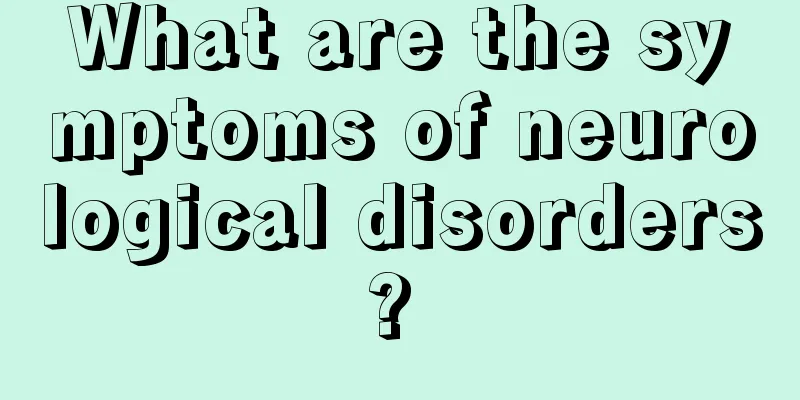What are the symptoms of neurological disorders?

|
The nerves can also get sick. Not everyone will be in a bad mood because of too much stress. It may be related to nervous function disorder. Many people will easily suffer from loss of appetite, nervousness, silence, and frequent distress and depression after suffering from nervous function disorder. This symptom must be paid attention to and personal treatment must be done. Symptoms and signs Symptoms and signs of autonomic dysfunction The patient is emotionally unstable, irritable and anxious. When he is annoyed, he cannot watch TV, and even feels uncomfortable when he hears someone talking. He feels anxious, angry, nervous, fearful, sensitive and suspicious. He cries easily when he feels wronged. He is pessimistic, disappointed and unhappy. He does not want to see people, does not want to talk, is not interested in anything, is not happy about anything he sees, and is depressed and distressed. They may even feel that life is meaningless, have difficulty falling asleep, have shallow sleep, wake up early with many dreams, feel tired, have memory loss, poor concentration, and are slow to react. Autonomic nervous system disorders can also lead to gastrointestinal dysfunction, such as loss of appetite, tasteless food, abdominal distension, nausea, hiccups, heartburn, chest tightness and shortness of breath, long sighs, throat obstruction, and sore throat. Some patients experience headaches, dizziness, stuffiness and dullness in the head, a feeling of tightness and pressure in the head, dizziness and numbness, stuffiness and dryness in the eyes, blurred vision, stuffiness in the face and limbs, tightness and heaviness in the neck and back, tightness, stiffness and discomfort all over the body, numbness in the limbs, hot palms and feet, hot skin all over the body, but normal body temperature, hot flashes and sweating all over the body, or wandering pain and abnormal sensations all over the body. Patients with autonomic nervous system disorders often present with subjective symptoms. Although they have undergone many examinations, the results are often normal and no disease can be found. The above symptoms are often clinically considered to be mental illness, cerebral ischemia, heart disease, and gastrointestinal disease and are treated, but the effect is often not high or ineffective. |
<<: What's the matter with stomach discomfort, nausea and vomiting
>>: What are the typical symptoms of neurological tinnitus
Recommend
How to repair the eardrum?
The ear is a tool for people to receive informati...
What are the symptoms of stomach fire
When we are healthy, we generally don’t feel any ...
The clinical manifestations of female ovarian cancer include various cachexia
The clinical manifestations of ovarian cancer oft...
What are the symptoms of bladder inflammation
The vast majority of patients with cystitis are f...
What are the early symptoms of bladder cancer?
Bladder cancer is a common male urinary disease w...
How to diagnose pituitary tumor
Since many families have only one child and the f...
Should the air cushion powder puff be used dry or wet
In recent years, Korean cosmetics have become ver...
What is endometrial cancer
What is endometrial cancer? I believe everyone is...
Blood pressure below 60
If the blood pressure is lower than 60, you must ...
What are the early symptoms of lung cancer? 7 early symptoms of lung cancer
For most people, the treatment of lung cancer mus...
Can lung cancer be cured after it is diagnosed? Lung cancer is often treated with these methods
Lung cancer is a very harmful disease, and the in...
Is the cure rate of nasopharyngeal carcinoma high? What are the cure methods?
Is nasopharyngeal carcinoma highly treatable? Wha...
Dangers of air fryers
Air fryers have become quite popular in recent ye...
I have a stiff neck. Do this to get better quickly
Neck stiffness is a very common phenomenon in dai...
What are some folk remedies for chronic inflammation of both lungs?
Chronic inflammation of both lungs should be rela...









